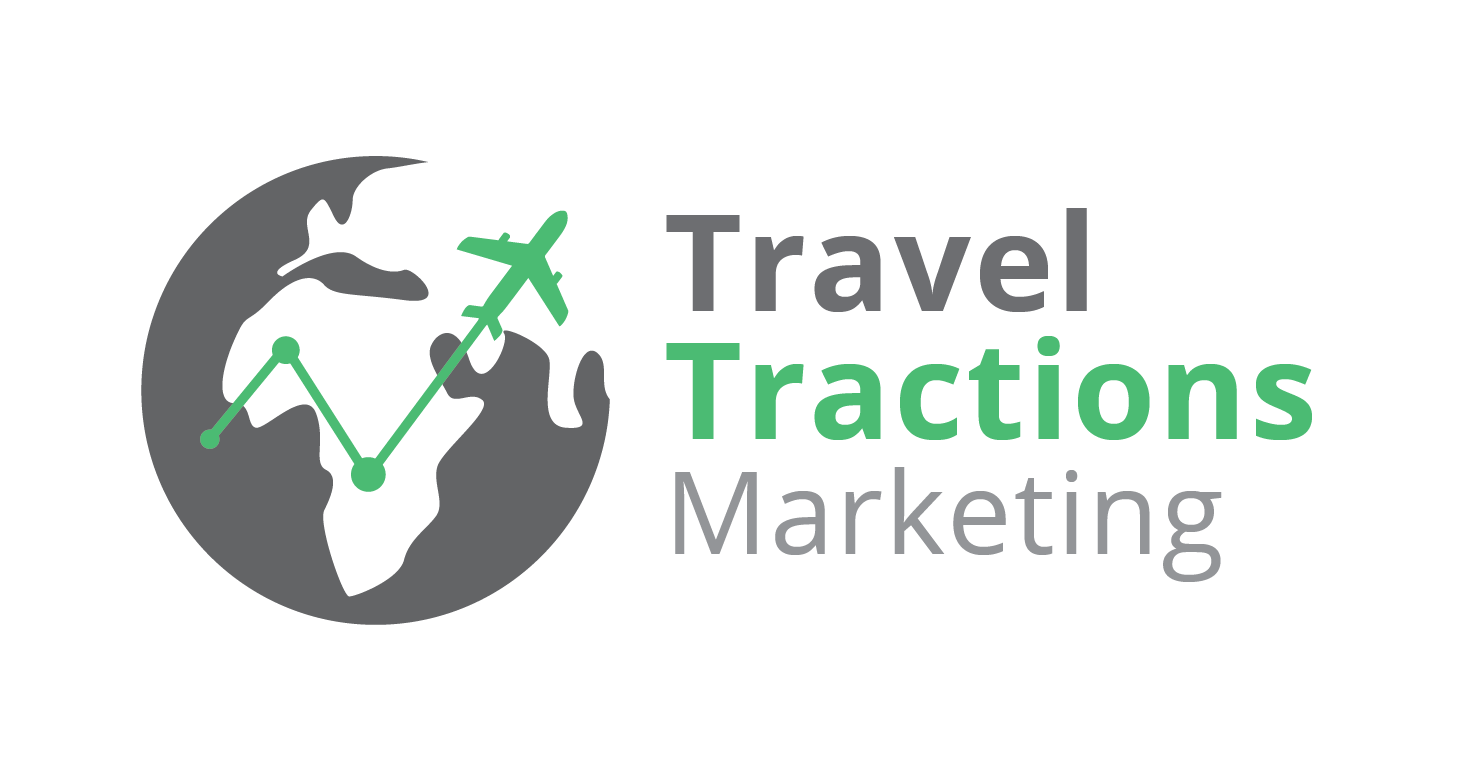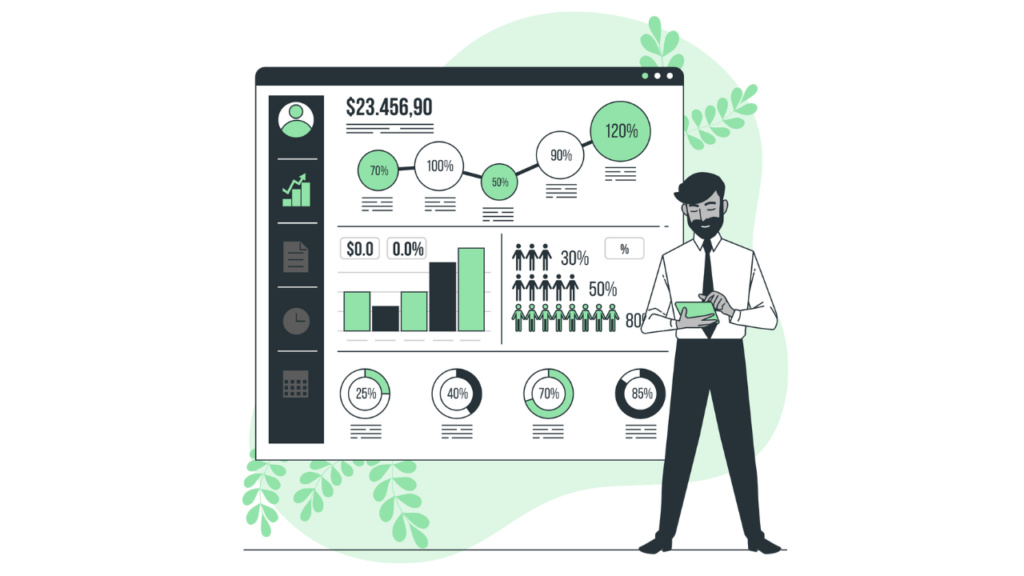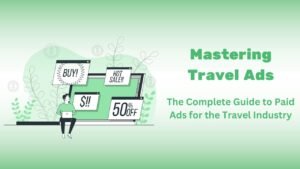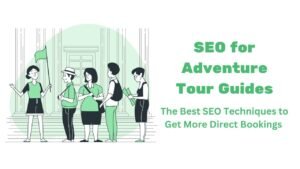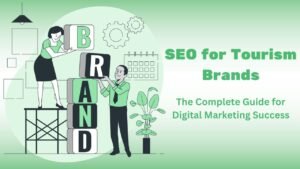
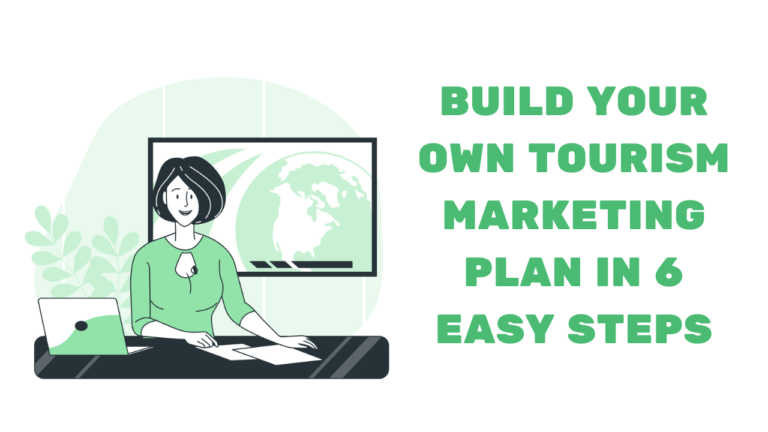
How to Build a Tourism Marketing Strategy or Plan in 6 Easy Steps
When it comes to your tourism marketing strategy, it’s important to know exactly where you’re headed. Having a wishy-washy plan of action is where most destination marketing strategies fall a little short.
It’s important that you get very specific and granular about the goals you would like to achieve because this means you’ll be a whole lot closer to actually achieving them. But before we dive into marketing in tourism, let’s find out what destination marketing is in the first place.
What is a Tourism Marketing Plan?
Having a marketing strategy in tourism means having a specific plan that aims at promoting touristic products or services such as tours, accommodation, or concierge services.
A well-executed tourist marketing plan or strategy is ultra important to the success of your business. After all, if you fail to let potential customers know the value that your business can add to their travels, they have no reason to use your business.
6 Step Marketing Strategy for Tourism
If you’re hoping to come up with a travel and tourism marketing plan that will actually generate leads, then follow these steps closely for the best results.
1. Identify Your Target Audience
If you are hoping to implement an effective marketing strategy, you need to know exactly who it is that your marketing needs to be geared towards. If you try to market to EVERYONE, very often, it turns out that you’re reaching NO ONE.
You’ll need to come up with a customer persona that represents your ideal audience or customer. While you’ll need to outline their general demographic, you also want to get a little more granular with their description as if they were a real person.
Having this detail will help you to market directly to your ideal audience as well as effectively manage your marketing budget. So you can spend more time focusing on developing customer loyalty.
When creating a buyer persona, include information such as the following:
- Age
- Career
- Income
- Physical location
- Interests
- Troubles
- Wants
- Needs
- Goals
Creating a buyer persona is often overlooked, but without this step, your marketing strategy could be completely ineffective. You want your message to come through loud and clear to the people whose attention you are trying to grab. So make sure you know exactly who that is.
2. Create Clear Goals
Your marketing strategy should have very clear goals. This way, you’ll be able to measure whether your marketing is effective or whether you need to reassess your strategy to help reach your goals. Each goal that you come up with should be a SMART goal:
- Specific
- Measurable
- Achievable
- Relevant
- Timely
If you ensure that each of your marketing objectives is specific, measurable, achievable, relevant, and timely, then you know that you have a list of very strong goals.
3. Analyze Your Competitors
The best way to get ahead in any industry is to learn from other companies’ mistakes so that you don’t have to go out and make them for yourself. The best way to do this is to analyze your competitors to understand their strengths and weaknesses. This allows you to excel where they excel and improve on their weaknesses.
Take at least three of your top competitors, and run them through this analysis to get a better understanding of their marketing strategy:
- What makes them attractive to their customers?
- What experiences do they offer, and at what price?
- Who is their target audience?
- What unique features and benefits do they offer?
- What is their overall rating on review sites?
- What do their guests/customers say about them?
- What type of social media platforms do they use?
- What kind of content are they posting?
- What kind of distribution channels do they rely on?
- Their domain authority score (that can be checked on Moz Keyword Explorer or Ahrefs)
- What keywords do they rank for? (can also be checked on Moz or Ahrefs)
This type of analysis will give you a better idea of where to start and how you can improve on your competitor’s marketing strategies when creating your own.
4. Choose Your Tourism Marketing Platforms
Unless you are a big company that can outsource its marketing efforts, you’ll likely have to refine your marketing to a couple of key platforms. So how do you decide which platforms are worth the ROI?
The best place to start is by looking at which platforms the majority of your competitors are focusing their marketing efforts on. There’s probably a good reason that most of them spend a lot of time on the same platforms. While that’s a good place to start, it may also take a little trial and error until you find the platforms that are converting best for you.
It’s important to remember that tourism is a highly visual niche, so whichever platform you are using to market your products or services, make sure it can support your high-quality content. These are some of the platforms that work well for tourism marketing:
- Social media
- Pinterest marketing
- YouTube
- TikTok
- SEO (search engine marketing)
- PPC (pay-per-click advertising)
- Content marketing
As you can see, there are many directions you can go in when it comes to tourism marketing. So it’s best to refine the process early on and decide on a couple of main platforms rather than half-heartedly trying to use every single one.
5. Ensure That You Are Selling a Unique Proposition
When creating your marketing content, you want to ensure that what you are selling has a clear message and one that sets you apart from your competitors. Here’s an example of what we are referring to:
- M&M’s – “Melts in your mouth. Not in your hand.” – this slogan tells people exactly what sets M&M apart as a candy.
- Domino’s – “Fresh, hot pizza delivered in 30 minutes or less, guaranteed.” – they are not claiming to have the best pizza; they are claiming to have pizza in your hand quickly.
So what does this look like for a tourism company? Well, that is entirely up to you, but here are some examples of how you could make your offer different from industry competitors:
- Tour company: book your tours last minute, let us handle your entire trip or no person-to-person contact booking.
- Accommodation: last-minute bookings, free cancellation policy, or return visitors get a night free.
There are many different directions you can go with your USP (unique selling proposition), and they don’t have to come at a cost to the company. Think about how you want to set your business apart from industry competitors and make sure that message comes across loud and clear in your marketing strategy.
6. Create Tourism Marketing Content
When creating a strategy for each of the platforms you have chosen, you need to make sure that each platform is working together as a cohesive team. For instance, you could run a competition on Instagram or Facebook that aims to collect emails for your email marketing campaign.
You should also ensure that the content being produced is not simply copied from one platform to another. The users of each platform are looking for something slightly different, so you will need to adapt your content to suit the audience of each platform.
Tips for Creating Marketing Content That Converts
Once you have chosen your marketing platforms, it’s important to understand that having a presence on those platforms is simply not enough. You need your copy to really speak to the right audience.
- Speak to your customer persona – You need to speak directly to the audience that you want to sell to, and your customer persona is a great example of your target audience. The voice present in your copy needs to speak to the values and perceptions held by your target audience. After all, if you try to speak to EVERYONE, you end up speaking to NO ONE at all.
- Use benefit-driven copy – when you are trying to entice your audience with an offer, focus on the benefits that you offer rather than just stating facts. If you are trying to sell a destination, focus on the benefits of visiting that location rather than just spewing out facts about the city or town.
- Collect emails ASAP – Having an email list that contains the emails of people interested in visiting your location or staying at your accommodation is one of the most valuable things you have. You can collect emails by having CTAs in your marketing content, offering freebies in return for emails, etc. This is important because you can send emails to people on your list, providing them with valuable content that can eventually lead to a conversion.
Implement Your Tourism Marketing Strategies
Now that you know exactly how to come up with a tourism marketing strategy, it’s time to implement it and get those bookings or sales. The marketing of tourism can seem tricky at first, but if you follow the steps provided above, you’ll be well on your way to running a successful company in the tourism industry.
We have been working with industry leaders for over 5 years. So if you would like to leave your tourism marketing strategy in safe hands, let us handle your marketing content so you can focus on building your business.
